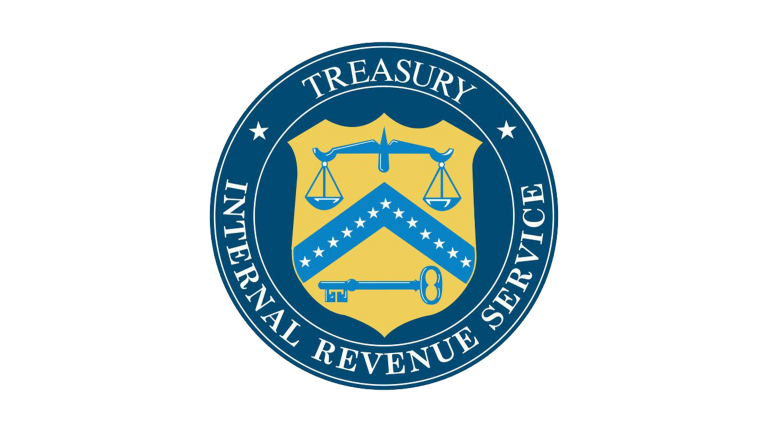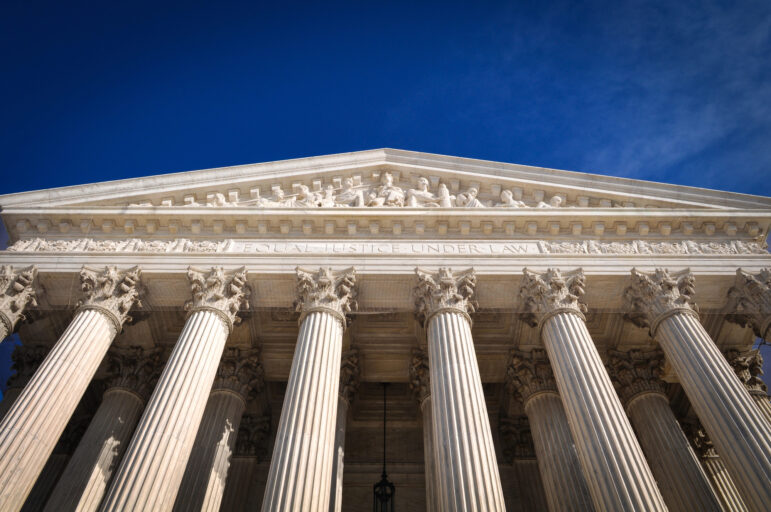TYLER, Texas – The National Religious Broadcasters (NRB), along with two Baptist churches and a conservative group called Intercessors for America, have filed a lawsuit against the IRS in the U.S. District Court for the Eastern District of Texas, Tyler Division, challenging restrictions on religious non-profit organizations, specifically churches, that prevent them from endorsing political candidates, supporting political campaigns, or advising their followers on how to vote.
The NRB is a “nonpartisan, international association of Christian communicators whose member organizations represent millions of listeners, viewers, and readers.” NRB writes that its mission is “two-fold: to protect the free speech rights of our members to speak Biblical truth by advocating for those rights in governmental, corporate, and media sectors; and to foster excellence, integrity, and accountability in our membership by providing networking, educational, ministry, and relational opportunities.”

US Internal Revenue Service logo – Public Domain
The Johnson Amendment is a provision in the U.S. tax code, introduced in 1954, that prohibits all 501(c)(3) non-profit organizations, including churches, from engaging in political activities such as endorsing or opposing political candidates. Named after then-Senator Lyndon B. Johnson, who later became the 36th President of the United States, the amendment was added to Section 501(c)(3) of the Internal Revenue Code.
The amendment was intended to ensure that tax-exempt organizations, that benefit from not paying federal income taxes, do not engage in political campaigning. The primary goal was to prevent charitable resources from being used to influence elections and to maintain a separation between non-profit organizations and partisan politics.
Under the Johnson Amendment, if a 501(c)(3) organization, including churches, is found to be participating in or intervening in any political campaign on behalf of (or in opposition to) any candidate for public office, it risks losing its tax-exempt status.
Over the years, the Alliance Defending Freedom, a conservative legal group, has organized “Pulpit Freedom” Sundays, encouraging preachers to defy IRS rules by endorsing candidates from the pulpit. During his presidency, Donald Trump signed an executive order intended to relax these IRS rules in 2017. Executive order 13798 blocked the IRS from broadening its restrictions on political activities by religious groups. Additionally, it offers “regulatory relief” to organizations that oppose, on religious grounds, the Obamacare provision requiring employers to provide certain health services, including contraception coverage.
In February of this year, the NRB hosted Trump at its annual convention in Nashville, where he vowed to restore power to Christians if elected for a second term. During the event, NRB President Troy A. Miller emphasized that the forum did not reflect the official views of the NRB. Trump urged religious broadcasters to support him, promising, “If I get in, you’re going to be using that power at a level that you’ve never used before.”

Courtesy DepositPhotos
The current lawsuit draws on similar themes of religious freedom. “For too long, churches have been instructed to remain silent on pressing matters of conscience and conviction during election season or risk their 501(c)(3) status,” Miller stated when announcing the lawsuit. He later added that many churchgoers have been subjected to concessions to an “anti-Christian culture” or heard nothing at all on critical issues from the pulpit due to fear of IRS retribution.
The lawsuit argues that the tax code unjustly silences churches while offering no viable alternative citing the Citizens United v. Federal Election Commission case, which reversed previous campaign finance restrictions in favor of corporate free speech. The plaintiffs say that churches are uniquely restricted in their political speech, placing them in a discriminatory position.
Moreover, the suit contends that the 501(c)(3) rules are inconsistently enforced and lack a rational basis for determining which organizations are penalized. It further argues that the IRS acts arbitrarily, particularly in a manner that disfavors conservative and religious organizations.
The complaint noted that “hundreds of newspapers are organized under § 501(c)(3), and yet many openly endorse political candidates. Others make statements about political candidates that constitute forbidden statements under the IRS’ interpretation of the statutory prohibition against supporting or opposing candidates.” It also noted that college newspapers and non-profit news agencies carry this privilege.
The complaint added, “There is no apparent rational basis for determining which 501(c)(3) organizations will be permitted to proceed and which will be penalized for violating the Johnson Amendment.”
The NRB said that while not all plaintiffs seek to openly endorse political candidates, they wish to express their views on candidates’ positions relevant to their concerns. They claim their free speech rights are “clearly chilled” by the IRS rule, which they argue violates the First and Fifth Amendments and the federal Religious Freedom Restoration Act.
“The IRS acts in an arbitrary and capricious manner vis-à-vis electoral statements by non-profit organizations,” the suit says, further arguing that the agency “operates in a manner that disfavors conservative organizations and conservative, religious organizations” in its enforcement of the code.
The complaint also accuses the IRS of allowing campaign activity in churches that support Democratic candidates while prohibiting similar activities in conservative churches. It lists several examples of such biased enforcement, noting that some IRS actions against churches were reversed or remain unclear.
Miller concluded by stating, “As Americans, we are the blessed stewards of a temporal home built on a foundation of faith to the best of its founders’ abilities. To be alert and engaged is just the beginning; we must do everything in our power to save America for the glory of God.”
“The Johnson Amendment has long been applied in a discriminatory manner that respects the First Amendment freedoms of some but not of others,” said NRB general counsel Michael Farris. “Our intent is to vindicate the right of every church and religious non-profit to express what their faith teaches on every issue, including political matters, as is their right and their duty.”
The plaintiffs noted in the NRB statement that they “are making no attempt to obtain a decision prior to the 2024 election. They are not filing a motion for a preliminary injunction or any other motion to expedite the litigation. They do not expect any hearings in the matter prior to the 2024 election. Some plaintiffs are not seeking the ability to formally endorse or oppose political candidates, and the complaint does not challenge limits on lobbying activity by 501(c)(3) non-profits or the restriction on donating directly to political candidates.”
The IRS declined to comment on the lawsuit, citing pending litigation.
The Wild Hunt is not responsible for links to external content.
To join a conversation on this post:
Visit our The Wild Hunt subreddit! Point your favorite browser to https://www.reddit.com/r/The_Wild_Hunt_News/, then click “JOIN”. Make sure to click the bell, too, to be notified of new articles posted to our subreddit.